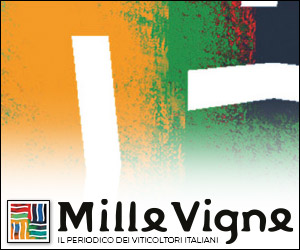by Helena Morgana Germanetto
In recent times, it’s become trendy to sit on a bar’s terrace and select the biodynamic wine with the quirkiest name on the menu. But what exactly does “biodynamic” mean? Does it imply something mystical or mysterious that affects your palate? How does it relate to the concept of life? Wine, in its essence, encapsulates life’s intricacies like no other. However, one may question whether biodynamics has deep historical roots or if it’s just the latest fad in wine marketing.
In fact, biodynamics is one of the oldest agricultural practices, predating even organic farming. After World War I, German farmers observed deteriorating soil conditions, declining field health, crop and livestock problems due to the widespread use of synthetic materials and the shift toward industrial farming.
An urgent solution was needed, leading to the invitation of Austrian philosopher and scientist Rudolf Steiner (Donji Kraljevec, 1861 – Dornach, 1925) to deliver a series of eight lectures that laid the foundation for biodynamics.
Biodynamics entails a holistic farming approach, the oldest anti-chemical agricultural movement, where one fundamental principle is viewing the farm as an organism, a self-contained entity. It emphasizes the integration of crops and animals, nutrient recycling, soil preservation, and the well-being of all farm components. This includes the farmer as an integral part of the whole.
While biodynamic and organic farming share many similarities, biodynamics looks ahead and goes beyond organic practices by emphasizing a proactive approach, centered on prevention rather than treatment. Most importantly, biodynamics seeks to revive depleted soils, reinvigorate lackluster plants, and reignite the passion of farmers who may have lost their connection to the land, while also preserving wine Protected Designations of Origin (PDOs) that face the risk of neglect.
Biodynamics and Terroir
French winemaker Nicolas Joly (Loire, 1945) is a prominent advocate of biodynamics. In his work, “Le vin, la vigne et la biodynamie” (Editions Ellébore-Sang de la terre, Paris 2007), he highlights the growing importance of biodynamics in the modern wine world. According to Joly, this shift is not merely a philosophical or ecological choice but rather a necessity for producing more original wines that faithfully represent their terroir.
This transformation arises from the need to distance wine production from a particular style that has been detrimental to various PDOs. Oenologists often resorted to artificial techniques in conventional agriculture to conceal its damaging effects. The use of commercial yeasts and other “cosmetic” treatments resulted in wines that tasted good but lacked individuality and could be replicated anywhere globally, undermining the true character of an Appellation. In contrast, organic and particularly biodynamic farming aim to give voice to wines and their terroirs.
Embracing a more sustainable approach to viticulture, farming closer to the land and the community, and respecting the sense of place, honors wine denominations and helps craft more authentic, representative wines that speak the language of their origin.
Joly references Steiner’s notion that life doesn’t solely belong to Earth; rather, the planet receives life from its place within a solar system and, on a larger scale, within a star system. Without these systems, life as we know it wouldn’t exist. The relationship between the whole and the individual is symbiotic, with each depending on the other for existence. In this perspective, biodynamics enables individuals to rediscover the profound diversity of plants, their uniqueness, and their interconnectedness with the micro and macrocosm.
Furthermore, biodynamics rekindles creativity among farmers, urging them to infuse their “Dionysian nobility” into the vines to craft wines from the heart, not just the mind. These wines are conceived in harmony with the Earth’s natural laws, reflecting the grandeur of the macrocosm and the vitality of the microcosm to which they belong.
Consciousness plays a crucial role in this context. In the case of wine appellations, farmers must acknowledge that their actions and thoughts are integral parts of a more extensive system with reasons, consequences, and impacts. Increasing awareness among all stakeholders within the appellation is a significant step toward restoring the rightful crown to wine’s head.



